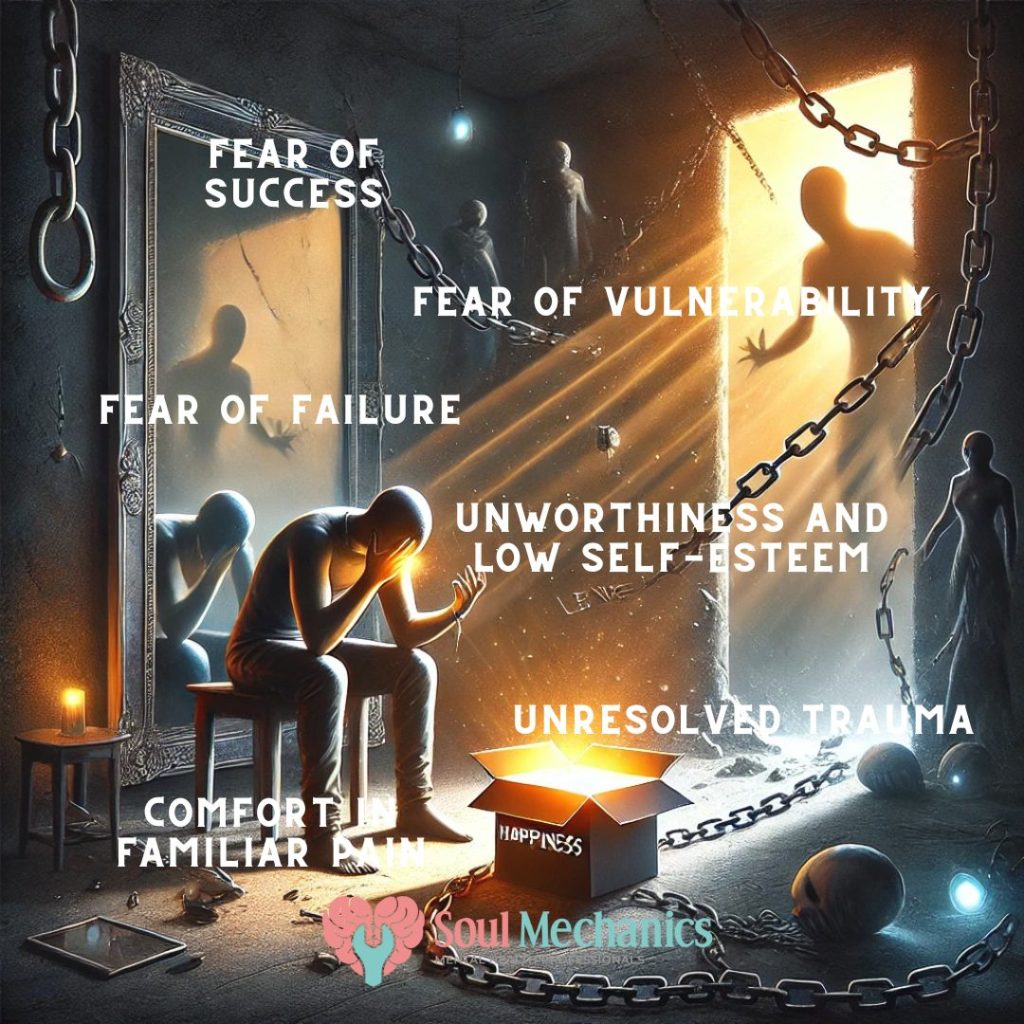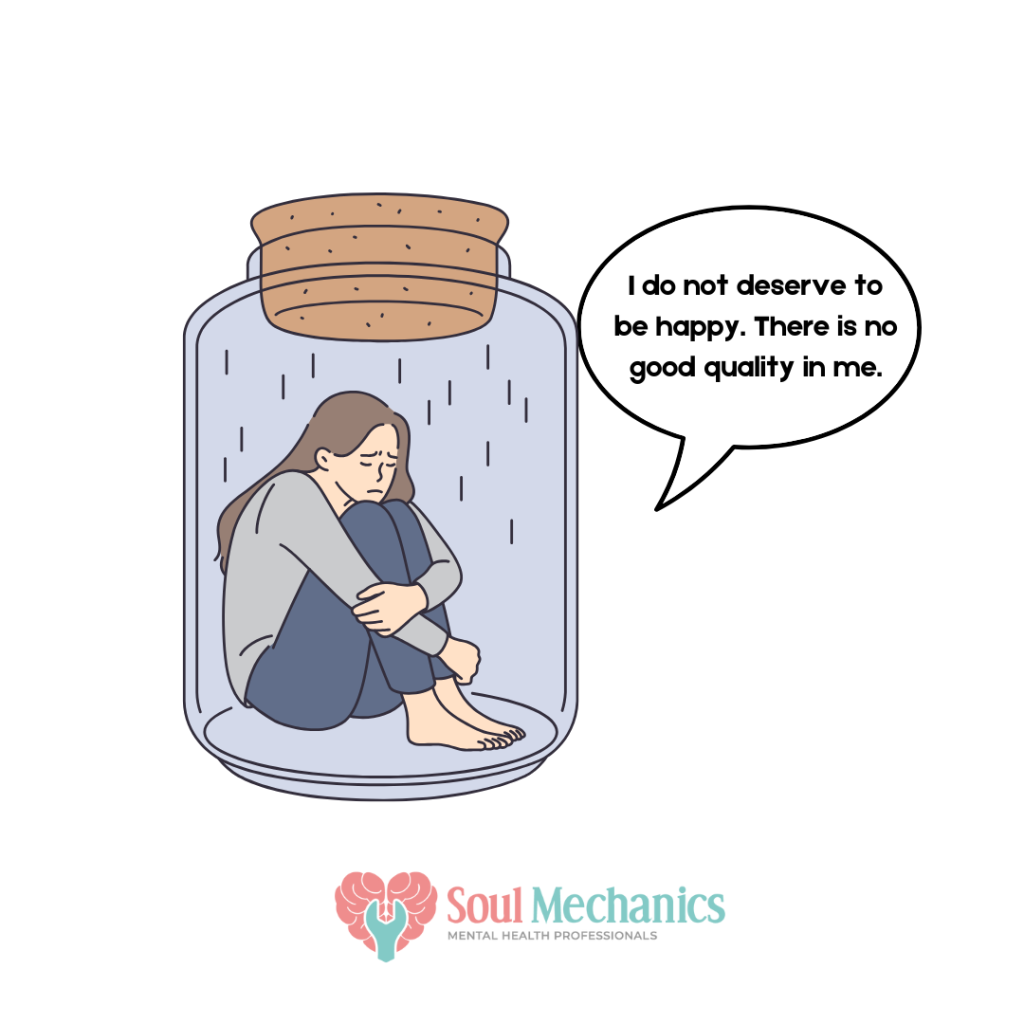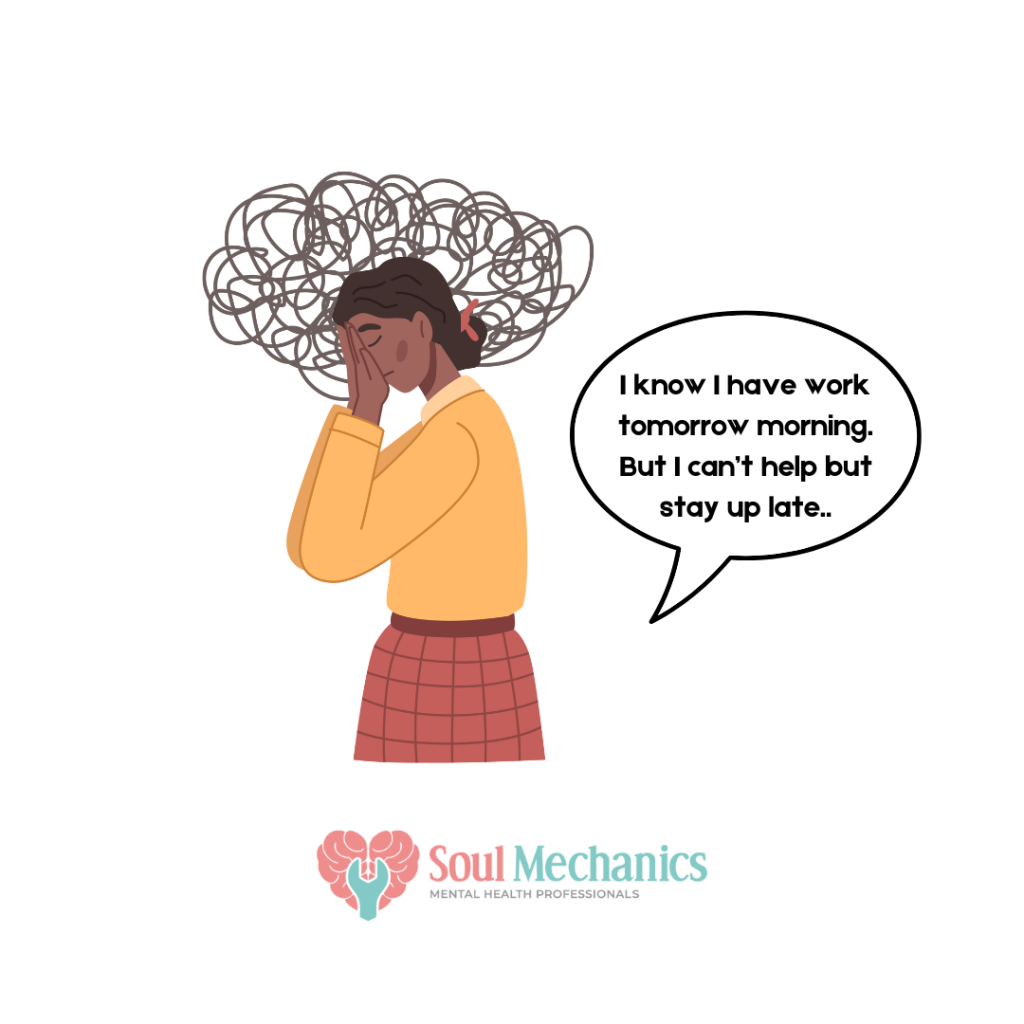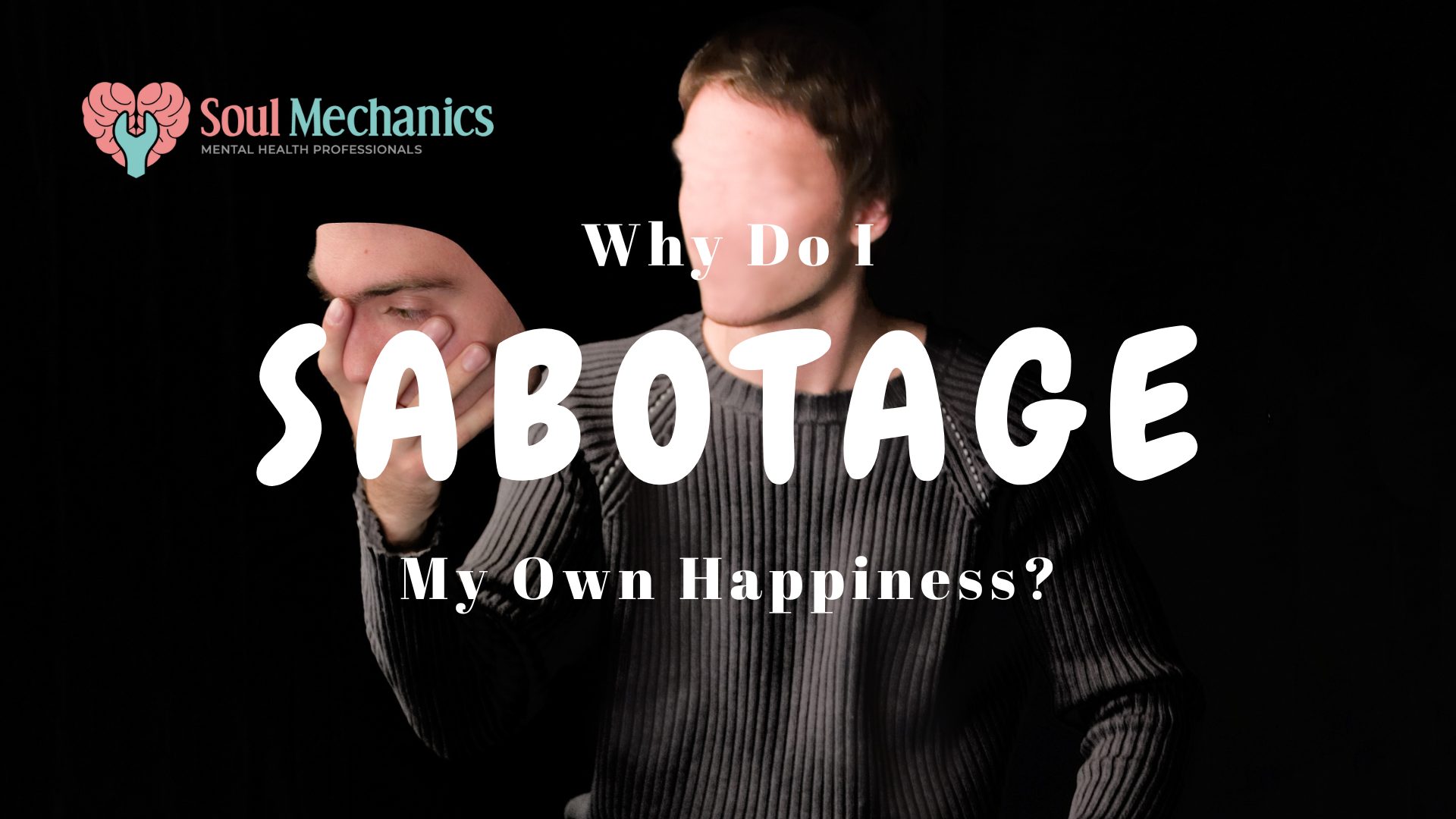Why Do I Self-Sabotage My Own Happiness?
Why Do I Self-Sabotage My Own Happiness?

Written By: Shaundtrya Ganasan, Licensed Counselor (KB11097)
Do you often be your own enemy to push away happiness?
Then you may be sabotaging yourself!
Exploring & Unpacking Self-Sabotaging

You’re on the verge of achieving something incredible—whether it’s a healthy relationship, career success, or a long-awaited personal goal. Yet, instead of celebrating and moving forward, you find yourself hesitating, procrastinating, or even creating obstacles that set you back. Sound familiar?
This puzzling behaviour is called self-sabotage, and while it might seem counterproductive, it often stems from deeply rooted fears, past experiences, or subconscious beliefs. Understanding why we sabotage our happiness can unlock the door to a more fulfilling life.
Let’s delve into the psychology behind self-sabotage, explore how it manifests, and discuss actionable ways to break the cycle.
What Is Self-Sabotage?
Self-sabotage refers to actions or behaviours—whether conscious or subconscious—that undermine your success or well-being. These behaviours often contradict your goals and values, leaving you stuck in a loop of frustration and regret.
For example:
- Undermining your health goals by binge-eating or skipping workouts.
- Constantly missing deadlines despite wanting to excel at work.
- Ending relationships when they start to get serious.

While these actions seem irrational, they often serve a hidden purpose: protecting you from perceived danger, discomfort, or failure.
Why Do We Sabotage Our Own Happiness?
The roots of self-sabotage are complex, often intertwining emotional wounds, psychological defences, and social conditioning. Here are some key reasons why we undermine our happiness:

Fear of Failure
Failure can feel like a direct attack on self-worth. By not trying—or by sabotaging your efforts—you create a convenient excuse: “I didn’t try, so it doesn’t count as a failure.” This protects you from the sting of feeling inadequate.
Fear of Success
Ironically, success can be just as intimidating as failure. With success comes higher expectations, increased visibility, and the risk of losing what you’ve gained. For some, it feels safer to avoid success altogether than to face the pressure it brings.
Unworthiness and Low Self-Esteem
At its core, self-sabotage often stems from a belief that you don’t deserve happiness, love, or success. These feelings might be rooted in childhood experiences, societal messages, or unresolved trauma.
Comfort in Familiar Pain
Even if pain and disappointment are unpleasant, they can be predictable and familiar. Happiness, on the other hand, might feel uncertain or fleeting, making it seem riskier than staying in your comfort zone.


Unresolved Trauma
Past trauma can leave you stuck in survival mode, where any form of vulnerability—such as happiness—feels unsafe. The subconscious fear is: “If I let my guard down and enjoy this, I might lose it.”
Fear of Vulnerability
Happiness often requires openness and connection with others, which can feel risky if you’ve been hurt before. By sabotaging relationships or pushing people away, you maintain a sense of control and avoid potential rejection.
How Self-Sabotage Manifests in Everyday Life
Self-sabotage doesn’t always announce itself loudly. It often shows up in subtle, everyday behaviours that seem justified on the surface but ultimately hinder progress.
Procrastination and Avoidance
You might delay starting a project, avoid having difficult conversations, or postpone self-care routines. For instance, you may avoid applying for a promotion because the fear of failure outweighs the potential reward.

Relationship Sabotage
In relationships, self-sabotage might look like testing boundaries, picking fights, or pulling away emotionally. For example, if you fear abandonment, you might preemptively end a relationship to avoid being hurt later.

Perfectionism
Striving for perfection can mask a fear of failure. You might abandon projects halfway because they don’t meet your impossibly high standards or avoid starting them altogether to escape potential criticism.
Overcommitment
Taking on too many responsibilities can be a way to ensure you’ll fail or fall short, confirming internal narratives of inadequacy.
Overindulgence or Addictions
Unhealthy coping mechanisms like overeating, overspending, or substance use can serve as temporary distractions but ultimately derail long-term goals.
The Psychology Behind Self-Sabotage
To understand why self-sabotage occurs, it’s crucial to examine the underlying psychology:
The Inner Critic
Everyone has an internal dialogue, but for some, this inner voice is excessively critical. It might say things like, “You’re not good enough” or “You’ll mess this up anyway.” Over time, this negative self-talk becomes a self-fulfilling prophecy.
Cognitive Dissonance
Cognitive dissonance occurs when your actions conflict with your beliefs. If you believe you’re unworthy of love, success, or happiness, you may act in ways that align with that belief, even if it’s harmful.

Protective Mechanisms
Your brain is wired to protect you from perceived threats. If happiness feels risky—because it requires vulnerability or invites the possibility of loss—your subconscious might sabotage it to keep you “safe.”

The Comfort Zone Trap
The brain prefers routines and familiarity. Even if those routines are destructive, they feel safer than the unknown territory of happiness or change.
Breaking Free From Self-Sabotage
Overcoming self-sabotage isn’t about willpower alone; it’s about understanding and reprogramming the beliefs and fears driving your behaviour.
Build Awareness
The first step to change is recognizing when and how self-sabotage occurs. Reflect on questions like:
- “What situations trigger my self-sabotaging behaviours?”
- “What emotions come up when I think about success or happiness?”
Challenge Limiting Beliefs
Identify the beliefs fueling your actions. For example:
- “I don’t deserve success because I’ve failed before.”
- “If I’m happy, something bad will happen.”
Replace these beliefs with empowering statements like: “I am capable of growth and worthy of joy.”
Reframe Failure
Instead of viewing failure as a reflection of your worth, see it as an opportunity for learning and growth. Celebrate effort over outcomes to build resilience.


Practice Self-Compassion
Self-sabotage often thrives on harsh self-criticism. Counteract this by treating yourself with kindness and understanding. When setbacks occur, remind yourself that everyone makes mistakes—and that doesn’t make you unworthy of happiness.
Set Small, Achievable Goals
Breaking larger goals into smaller steps reduces overwhelm and creates a sense of accomplishment. For instance, instead of aiming to “get in shape,” commit to a 15-minute walk three times a week.
Seek Support
Therapy can help uncover the root causes of self-sabotage and provide tools for change. Therapy is highly effective in addressing negative thought patterns.
Embrace Vulnerability
Happiness requires openness, trust, and connection. While vulnerability might feel risky, it’s also the gateway to meaningful relationships and experiences. Start small—share your feelings with a trusted friend or take a manageable risk in your personal life.

The Road to Self-Fulfillment

Breaking free from self-sabotage is a journey, not a destination. It requires patience, practice, and a willingness to confront uncomfortable truths about yourself. But with time and effort, you can rewrite the narratives that hold you back and create a life that aligns with your true potential.
Remember, self-sabotage isn’t a sign of weakness—it’s a sign that your subconscious is trying to protect you. By acknowledging its presence, understanding its purpose, and taking intentional steps to overcome it, you can move closer to a life filled with genuine joy and fulfilment.
So the next time you find yourself on the verge of happiness, pause and ask: “What am I afraid of?” The answer might be the key to unlocking your truest self.
If you’re looking for a therapist in Kota Damansara or Ipoh area, you can click here for more information.
If you enjoyed reading this, why not broaden the horizon of knowledge by learning about "Over-Explaining – A Trauma Response?"? You can read the blog here.
For more content related to mental health do follow us on our official Instagram.

